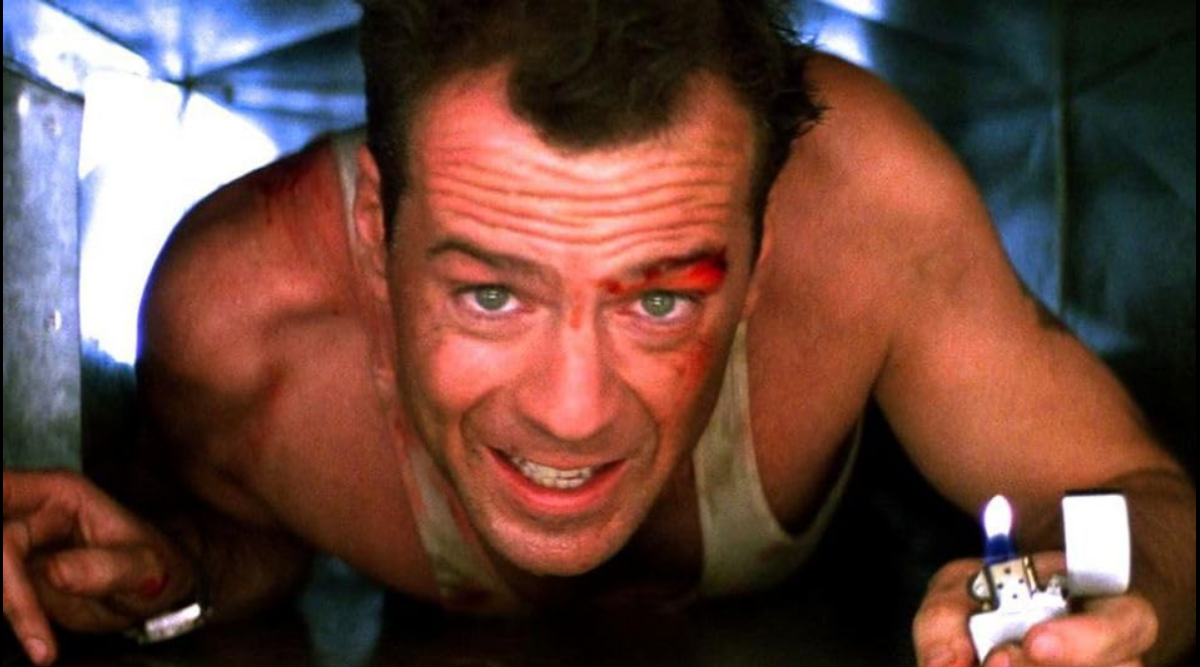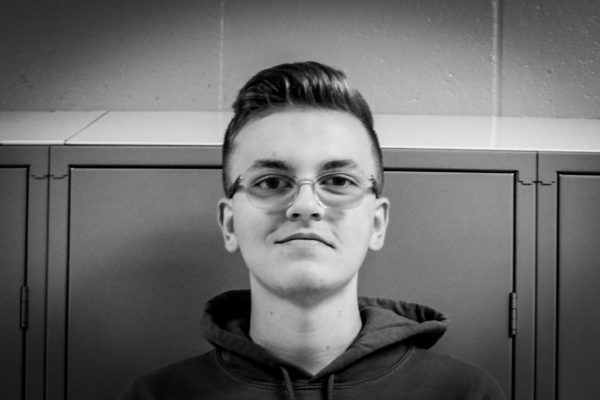‘Twas the night before Christmas and all through LA
Only one man was stirring, and his name was McClane
The explosives set off on the roof with a flare
In the hopes that the hostages must have been be there
The vault had been breached as they planned their escape
While McClane dragged his feet, all bent out of shape
His wife held at gunpoint as he spotted the tape
He faked his surrender–and for Gruber, it was too late.
The debate reignites each year around this time–is 1988’s “Die Hard” a Christmas movie?
Does it fit into the holiday rotation along with “Elf,” “Home Alone” and “Christmas Vacation?”
Does John McTiernan’s tale of a New York City cop’s (Bruce Willis) high-stakes game of cat-and-mouse with international terrorists classify as a holiday film–just because of its festive background? A corporate Christmas party?
One thing is certain, “Die Hard” is a classic.
The film has stood the test of time for 35 years, becoming known as much more than an action film.
Its unique blend of action, humor…
…and suspense, all set to a Christmas backdrop, set it apart from its predecessors like “Terminator” or “Rambo.”
The casting of Bruce Willis, then best known as a comedic actor, broke new ground for an action movie. His character of John McClane offered a relatable, reluctant and imperfect hero.
Unlike the muscle-bound action heros of the time, played by Arnold Schwarzenegger and Sylvester Stallone, McClane is just an everyday guy in extraordinary circumstances. His vulnerability and humor are essential to the movie’s lasting legacy.
“Die Hard” allowed a protagonist to be human, illustrating McClane’s humility through his self-doubt and genuine fear throughout the film. McClane gets injured, he gets dirty. He shows fatigue and faces setbacks. He bleeds. He sweats. He cries.
McClane is a break from the invincible, immortal, unbreakable action hero of the 80s. He is human.
“Die Hard” wouldn’t be “Die Hard” without McClane swearing to himself, cracking jokes in the air vents and promising to himself he would “never even think about going up in a tall building again.”
That humor is the catalyst to some of the film’s most iconic and memorable one-liners. Delivered with Willis’ charisma and wit, phrases like “Yippee-ki-yay” are forever ingrained in pop culture.
In an NPR interview, the film journalist and author of “The Last Action Heros” Nick De Semlyen said that McClane’s character “changed the game.”
“He wasn’t a Schwarzenegger,” Semlyen said. “He wasn’t a Stallone. He was, like, kind of a regular looking guy, more or less.”
He was a regular guy facing regular problems–a relationship on the rocks, fear and self-doubt.
This portrayal, Semlyen said, paved the way for “films where the heroes suddenly were more vulnerable.”
“You saw Keanu Reeves,” Semlyen said, “you saw Wesley Snipes. You saw these more regular guys who weren’t always in the gym bodybuilding become the new wave of action heroes.”
“Die Hard” created a new action archetype, a protagonist who relies on their brains and resourcefulness, no super strength, no arsenal of weapons, no high-tech gadgets.
McClane is the blueprint for the action hero who thinks on his (bare) feet and who can improvise and problem-solve under pressure.
Without “Die Hard,” there is no “Home Alone,” no “Paul Blart Mall Cop,” no “John Wick.” Without “Die Hard,” Hollywood studios might not have risked adapting Mission Impossible or the Bourne franchises for the big screen.
“Die Hard” taught us that true heroes don’t look a certain way. Heroism is not reserved for those who fit a stereotype. Heroes can come in any shape and any size.
Sure, a hero can look like McClane, or like Reginald VelJohnson’s Sgt. Al Powell or the limo driver Argyle. Heroism is found in your actions, how you carry yourself, how you treat others, and how you face adversity. And most importantly, how you treat others in the face of adversity.
It’s a film about the enduring spirit, the spirit of resilience, self-sacrifice and courage.
That sounds a lot like Christmas spirit to me.


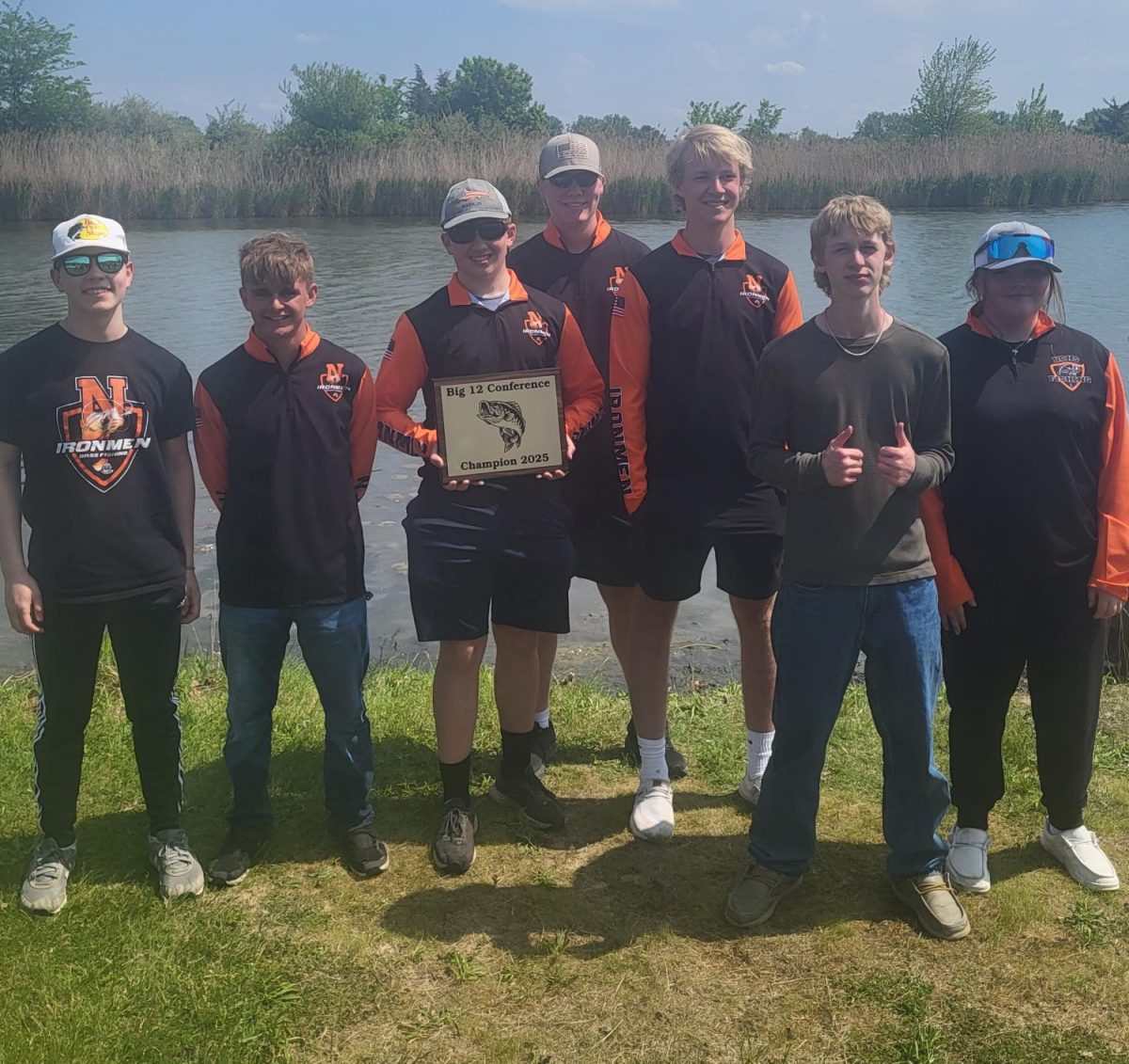


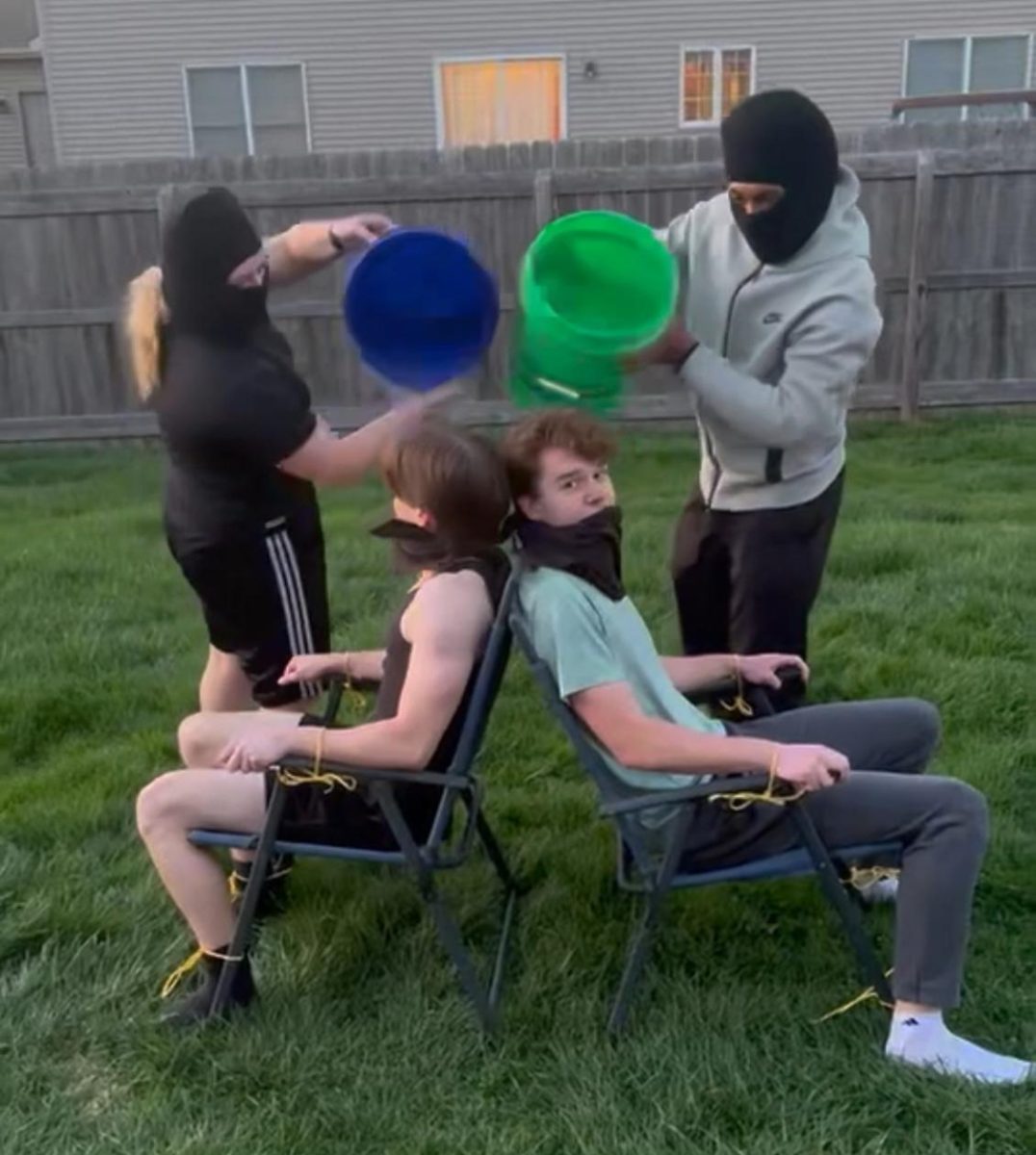























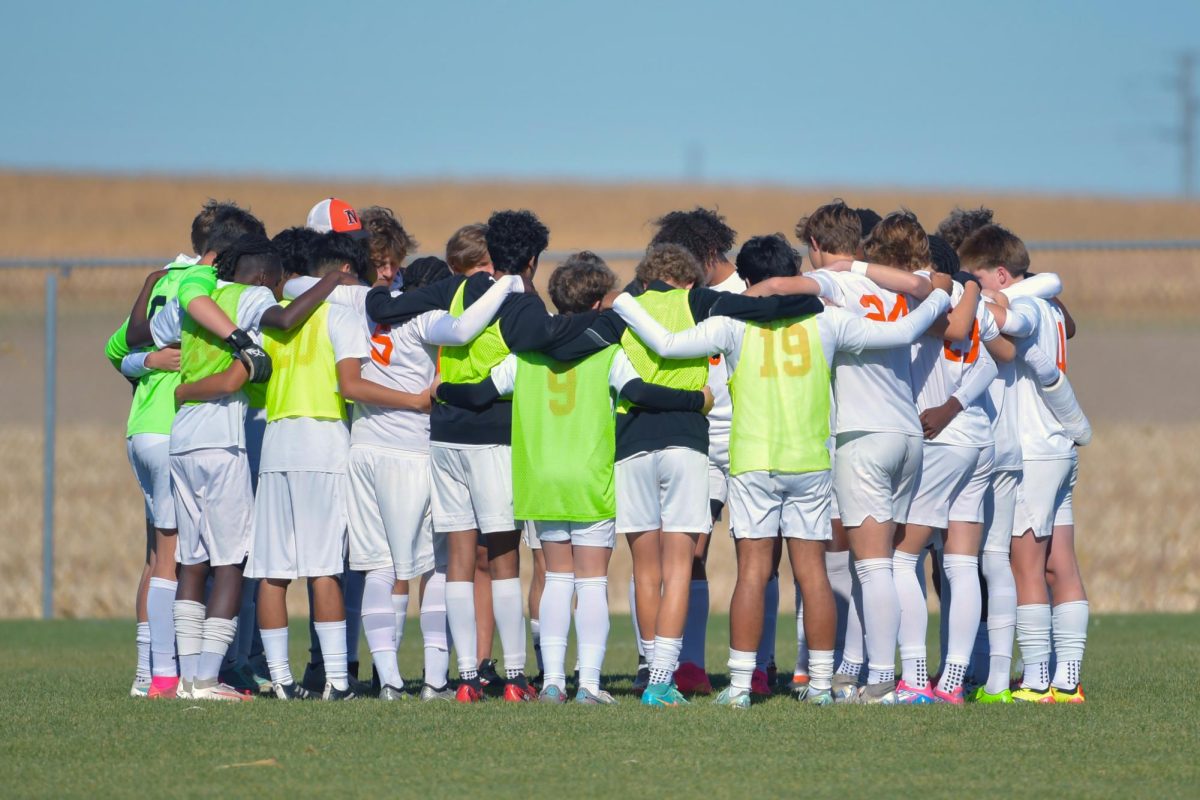
![Coach Drengwitz on the loss to Mt. Carmel, 2024 season [video]](https://nchsinkspot.com/wp-content/uploads/2024/11/Postseason-presser-feature-1200x800.png)
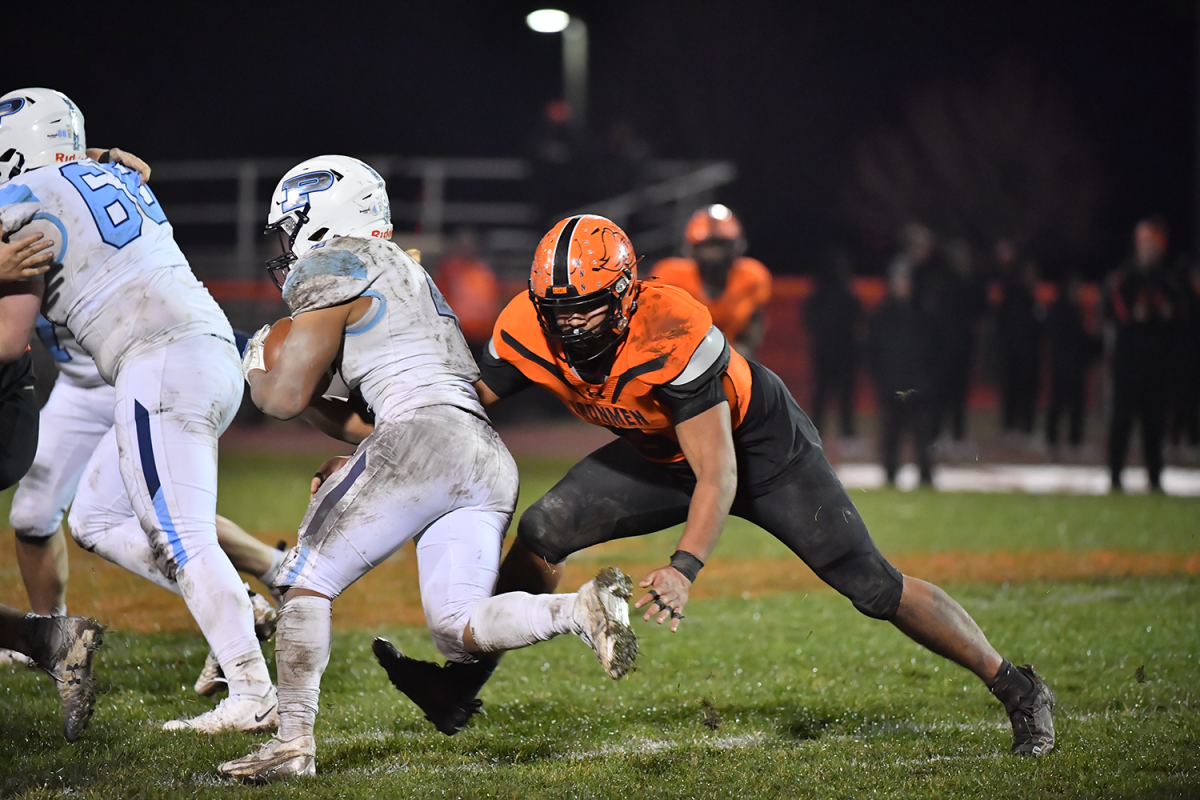
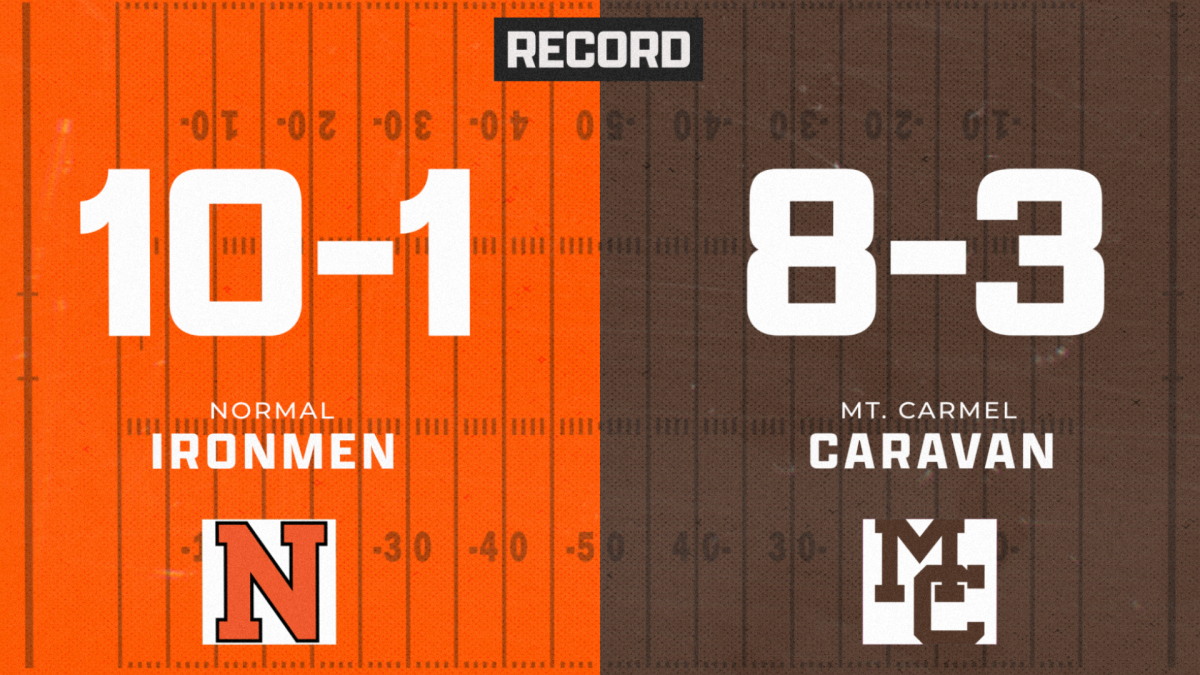
![IHSA 7A Football Playoffs Quarterfinals: Ironmen head coach on facing the Mt. Carmel Caravan [video]](https://nchsinkspot.com/wp-content/uploads/2024/11/0w12-web-feature-1200x800.png)









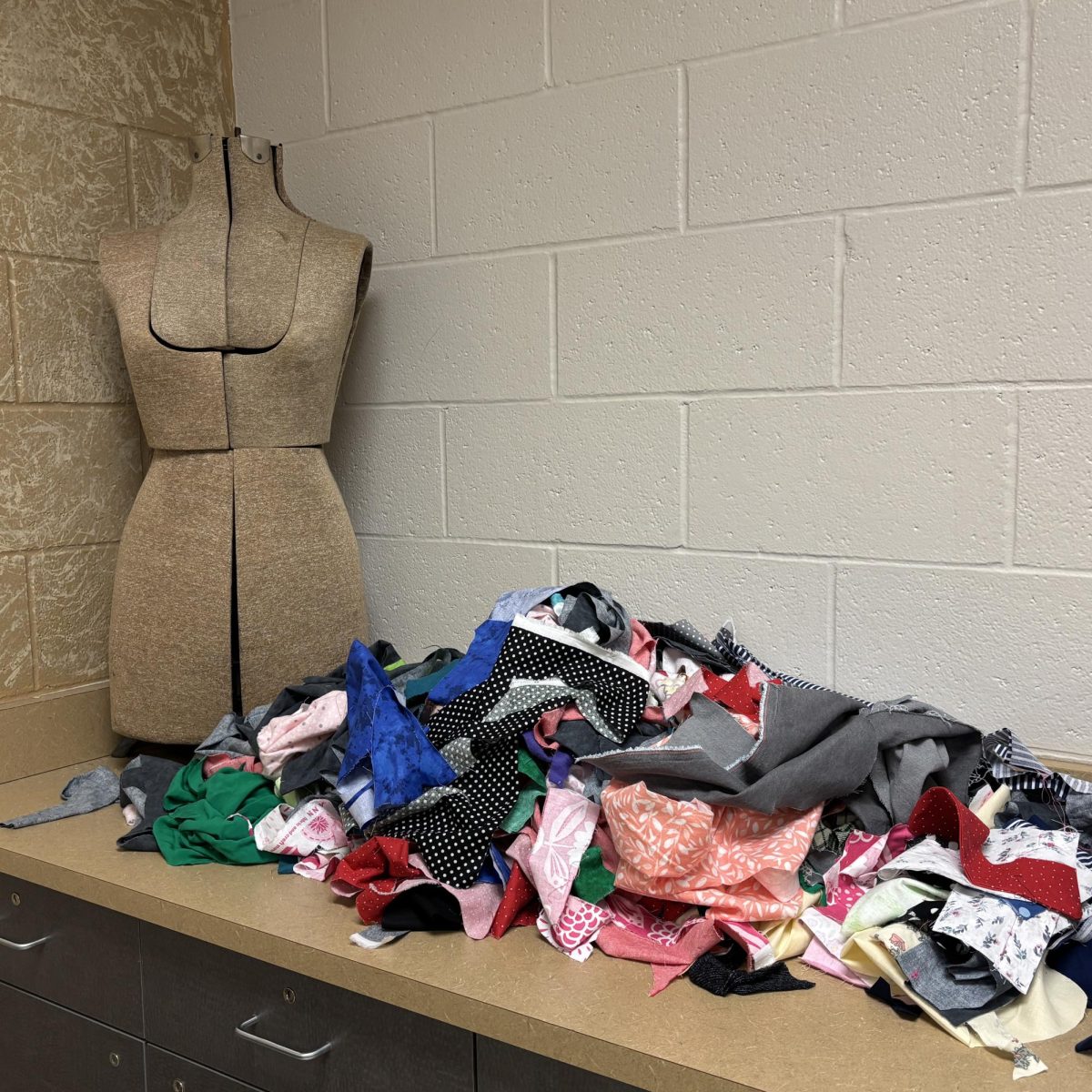



![Halloween candy cross section quiz [quiz]](https://nchsinkspot.com/wp-content/uploads/2022/10/Candy-cover-big-900x675.png)
![Average Jonah? [quiz]](https://nchsinkspot.com/wp-content/uploads/2022/05/average-jonah-900x600.png)











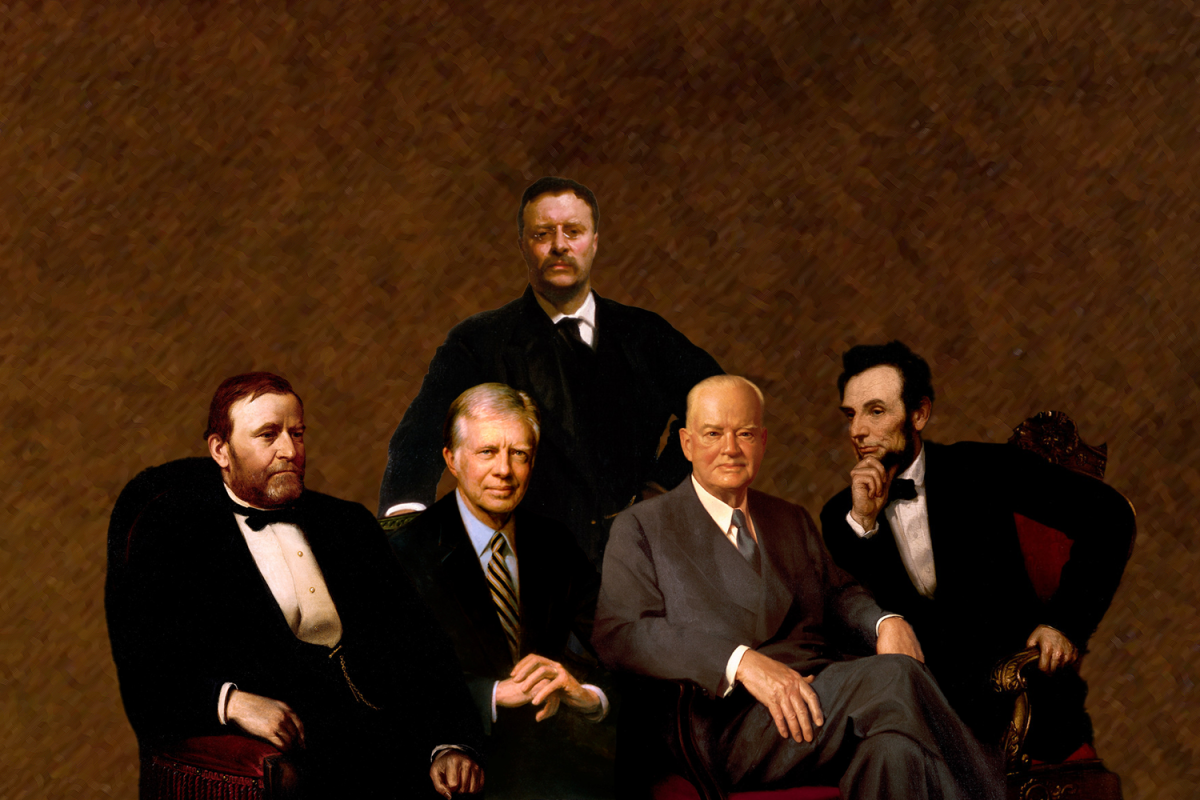

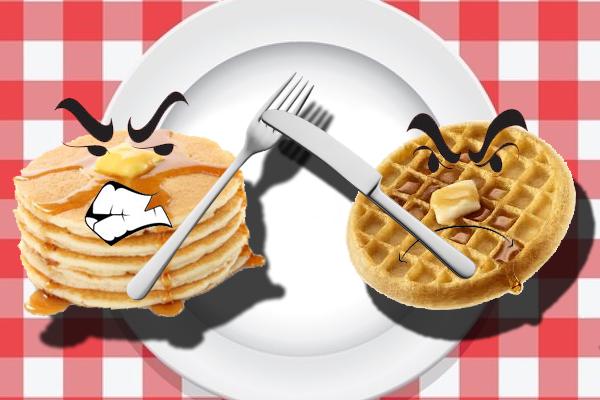








![Cell phone ban in schools? Community responds to proposed legislation [video]](https://nchsinkspot.com/wp-content/uploads/2025/04/Sequence.00_01_09_19.Still001-1200x675.png)




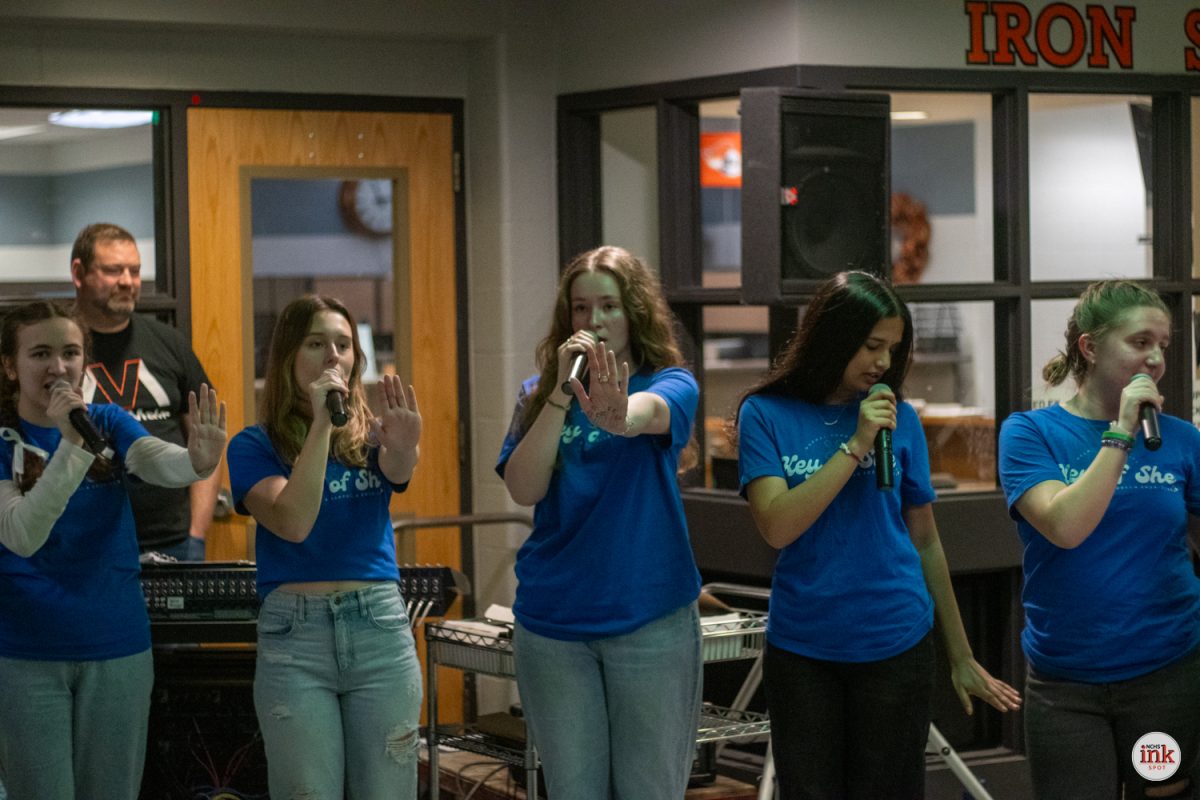
![Ironmen spring sports update: April 9 [video]](https://nchsinkspot.com/wp-content/uploads/2025/04/sports-recap-square-1200x1200.png)

![Ironmen in the hunt: Coach Feeney talks Big 12 Title race ahead of PND matchup [video]](https://nchsinkspot.com/wp-content/uploads/2025/01/feeney-1200x675.png)
![On the Spot: This or That – Halloween [video]](https://nchsinkspot.com/wp-content/uploads/2024/10/tot-Halloween-YT-1200x675.png)
![On the Spot: This or That – Fall favorites [video]](https://nchsinkspot.com/wp-content/uploads/2024/10/ots-fall-web-1200x800.png)
![On the Spot – Teachers tested on 2023’s hottest words [video]](https://nchsinkspot.com/wp-content/uploads/2024/01/On-the-Spot-Teachers-tested-1200x675.png)








